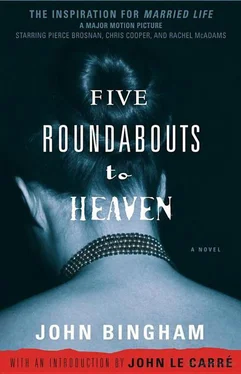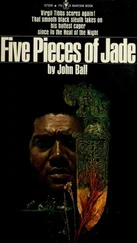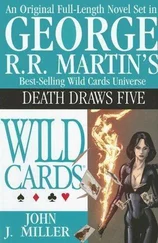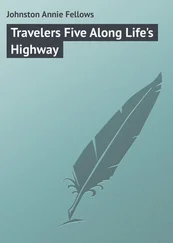John Bingham - Five Roundabouts to Heaven
Здесь есть возможность читать онлайн «John Bingham - Five Roundabouts to Heaven» весь текст электронной книги совершенно бесплатно (целиком полную версию без сокращений). В некоторых случаях можно слушать аудио, скачать через торрент в формате fb2 и присутствует краткое содержание. Жанр: Криминальный детектив, на английском языке. Описание произведения, (предисловие) а так же отзывы посетителей доступны на портале библиотеки ЛибКат.
- Название:Five Roundabouts to Heaven
- Автор:
- Жанр:
- Год:неизвестен
- ISBN:нет данных
- Рейтинг книги:4 / 5. Голосов: 1
-
Избранное:Добавить в избранное
- Отзывы:
-
Ваша оценка:
- 80
- 1
- 2
- 3
- 4
- 5
Five Roundabouts to Heaven: краткое содержание, описание и аннотация
Предлагаем к чтению аннотацию, описание, краткое содержание или предисловие (зависит от того, что написал сам автор книги «Five Roundabouts to Heaven»). Если вы не нашли необходимую информацию о книге — напишите в комментариях, мы постараемся отыскать её.
Five Roundabouts to Heaven — читать онлайн бесплатно полную книгу (весь текст) целиком
Ниже представлен текст книги, разбитый по страницам. Система сохранения места последней прочитанной страницы, позволяет с удобством читать онлайн бесплатно книгу «Five Roundabouts to Heaven», без необходимости каждый раз заново искать на чём Вы остановились. Поставьте закладку, и сможете в любой момент перейти на страницу, на которой закончили чтение.
Интервал:
Закладка:
“Is that your honest opinion?” he asked. His eyes shone, and the lines and the shadows seemed to disappear.
“Of course it is.”
“If I succeed, it will be entirely due to Lorna’s influence.”
“So you suggested before.”
“She makes me feel that I’m pretty good at my job.”
“So you are, I expect,” I said mildly.
My fit of jealousy had departed. I watched his thin figure walking along the narrow track in front of me, the wind ruffling the absurd patch of hair on the crown of his head, and I did not begrudge him his mood of buoyancy.
“You’ll have to come and stay a lot with Lorna and me, when we’re married,” he said over his shoulder.
I almost laughed out loud. “That’s very kind of you, Barty. I shall enjoy it. When are you thinking of telling Beatrice?”
“Oh, one of these days,” he said vaguely. “Sometime when the moment is ripe.”
He walked along in silence for a few moments. The dog Brutus, beginning to tire a little now, was walking at his heels, indifferent to the possibilities which the hedges offered him.
“There’s something I’ve been wanting to tell you,” said Bartels suddenly. We had come to a gate, and were looking over it, smoking our pipes. The dog, glad of the rest, had flopped down on the ground.
“Go ahead,” I said absently.
“Well, I just wanted to say how much it has meant to me to have your friendship at this time. That’s all.”
“It’s nothing,” I said. I couldn’t look at him.
“It may be nothing to you, but it’s made all the difference to me.”
“I haven’t done anything,” I replied uneasily. “You’d have been all right without me.”
But he shook his head.
“I sometimes wonder whether I could go through with it without having somebody to talk to, I think I might even have given it all up by now.”
For a moment I had a fleeting feeling as though a hand had gripped my heart.
“I should think it’s time we went back,” I said, and turned away from the gate.
It was after lunch that the dog Brutus died.
The circumstances were as follows.
Bartels and I returned with the dog from our walk. Beatrice had finished the simple household work which she did at weekends, and the cooking was well under way. She had laid out a tray of drinks in the drawing room, and was reading the papers when we arrived back.
We helped ourselves to drinks, and Bartels and I joined Beatrice in dipping into the newspapers. The dog, tired after his walk, but by no means distressed, lay in his customary place on the rug before the fire. He licked his paws for a few seconds, and then lay content but not asleep.
After a while, Bartels called the dog by name. The animal lifted his heavy head and gazed with his half-blind eyes in the direction of Bartels’ voice. He moved his tail slightly, lazily, but made no effort to get up.
Bartels called him again, and this time he got to his feet and walked slowly over to the chair where Bartels sat. He put his head on Bartels’ knee, and Barty fondled him, scratching him behind the ears, and stroking his muzzle with his forefinger.
Once, Bartels bent down and rubbed the side of his face against the side of the dog’s head. Beatrice made some remark about the dog having grown up with their marriage, because they had bought him as a puppy shortly after the honeymoon. Bartels made no comment about this, but continued to fondle the dog.
Shortly after, Beatrice went out to serve up the lunch.
A little later, we all went into the dining room, and the dog Brutus followed. When we had finished the meal, Bartels carved a few pieces from the outside of the joint for the dog. Meat being rationed, he did not carve a great deal.
He then went out into the kitchen, saying that he was going to break up some dog biscuits to mix with the meat. About five minutes later, he returned with the plate of food. Beatrice remarked that he had been some time. Had he had any difficulty in finding the biscuits?
Bartels said no, he had found them all right, but made no further comment.
He placed the plate on the floor at the side of the room, under the dresser, and called the dog Brutus. He laid his hand on the dog’s back, as he began to eat, kept it there a few seconds, and then returned to his seat at the table.
By this time we were smoking our after-lunch cigarettes. I was talking to Beatrice, but Bartels made no attempt either to join in or to listen. He sat watching the dog eat.
When the dog had finished, I remember seeing him, out of the corner of my eye, move slowly over towards the window. He did not reach the window.
Approximately two yards from the window, he sank slowly to the floor, and rolled on to his side. He sighed once, as though he were tired, and did not move again.
Almost at once, Bartels got up, and went over to the dog, and a few seconds later said, in a funny kind of voice:
“I think poor old Brutus has died.”
Beatrice gave a little cry, and put her hand to her mouth, but she did not rise from the table. I joined Bartels with the dog, and confirmed what he had said.
Bartels remained on one knee, his right hand still on the dog’s heart, his eyes fixed upon Beatrice. He said:
“He’s dead all right. Quickly, and without pain. That is a good way to go out; no struggles, no fears, no gasps. He just went to sleep.”
Beatrice had risen, and came over and joined us. She was biting the knuckles on her right hand. She looked down on the dog. Her eyes grew moist but she did not cry. She said:
“Poor old Brutus! The house won’t be the same without him. Still, he didn’t suffer.”
I remember noting the strange, unblinking stare which Bartels gave Beatrice, but I thought nothing of it at the time. I heard him say:
“No, that’s the point. There was no suffering. None at all. He had to die sometime. So have we all. A few days or months or years sooner or later make no difference. It’s not when you die that matters. It’s how.”
I recalled he had said that once before, all those years ago at the chateau. But I attached no importance to it.
We buried the dog in a grassy bank at the bottom of the garden, having first wrapped him in an old Army blanket. Beatrice said she would buy a stone with the dog’s name on it. Bartels shrugged slightly, and said:
“If you like. But when we leave here-when we’re gone-it’ll only be a matter of time before the stone disappears, too.”
He had a curious sense of the inevitability of oblivion.
I said that I had an engagement in London, and I left them that evening, Beatrice and Bartels, together, each to their own thoughts, and actions. I never saw them together again.
Just before I left, an unpleasant little incident occurred. Beatrice was mending some undergarment or other, and Bartels, at the other side of the fire, had been reading; but now he had laid his book on his lap, and was gazing over at Beatrice, apparently deep in thought.
Near the wall was a side table, and above it a landscape in oils, framed in an old-fashioned, heavy, carved frame. After a while Bartels glanced up at the picture, saw that it was not hanging quite straight, and got up to adjust it.
He placed his open book on the side table, and moved the frame. When he moved it, a large, hairy moth which must have gone behind the picture to die in seclusion and warmth the previous autumn, dropped down with a tiny thud upon the open pages of the book.
Bartels made a curious little noise, half gasp, half groan, and shrank back. His face had flushed pink with shock; he stood staring at the dead insect, not daring to approach it.
Beatrice quickly put her mending down, and went over to the side table, and picked the moth up by its wings. She walked to the fire.
Читать дальшеИнтервал:
Закладка:
Похожие книги на «Five Roundabouts to Heaven»
Представляем Вашему вниманию похожие книги на «Five Roundabouts to Heaven» списком для выбора. Мы отобрали схожую по названию и смыслу литературу в надежде предоставить читателям больше вариантов отыскать новые, интересные, ещё непрочитанные произведения.
Обсуждение, отзывы о книге «Five Roundabouts to Heaven» и просто собственные мнения читателей. Оставьте ваши комментарии, напишите, что Вы думаете о произведении, его смысле или главных героях. Укажите что конкретно понравилось, а что нет, и почему Вы так считаете.












